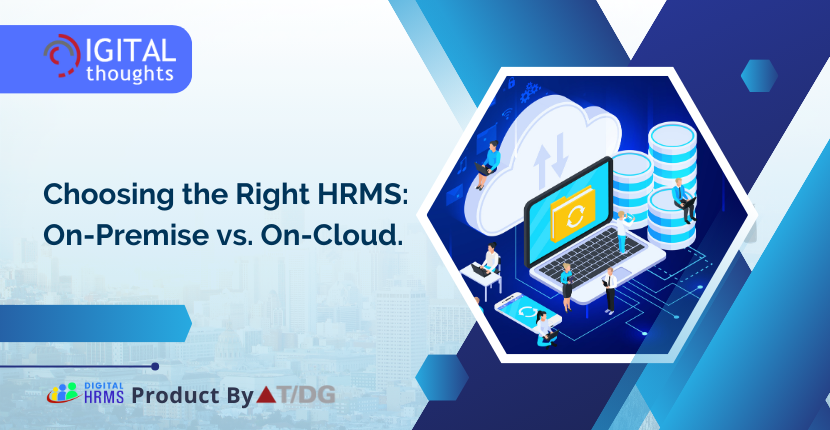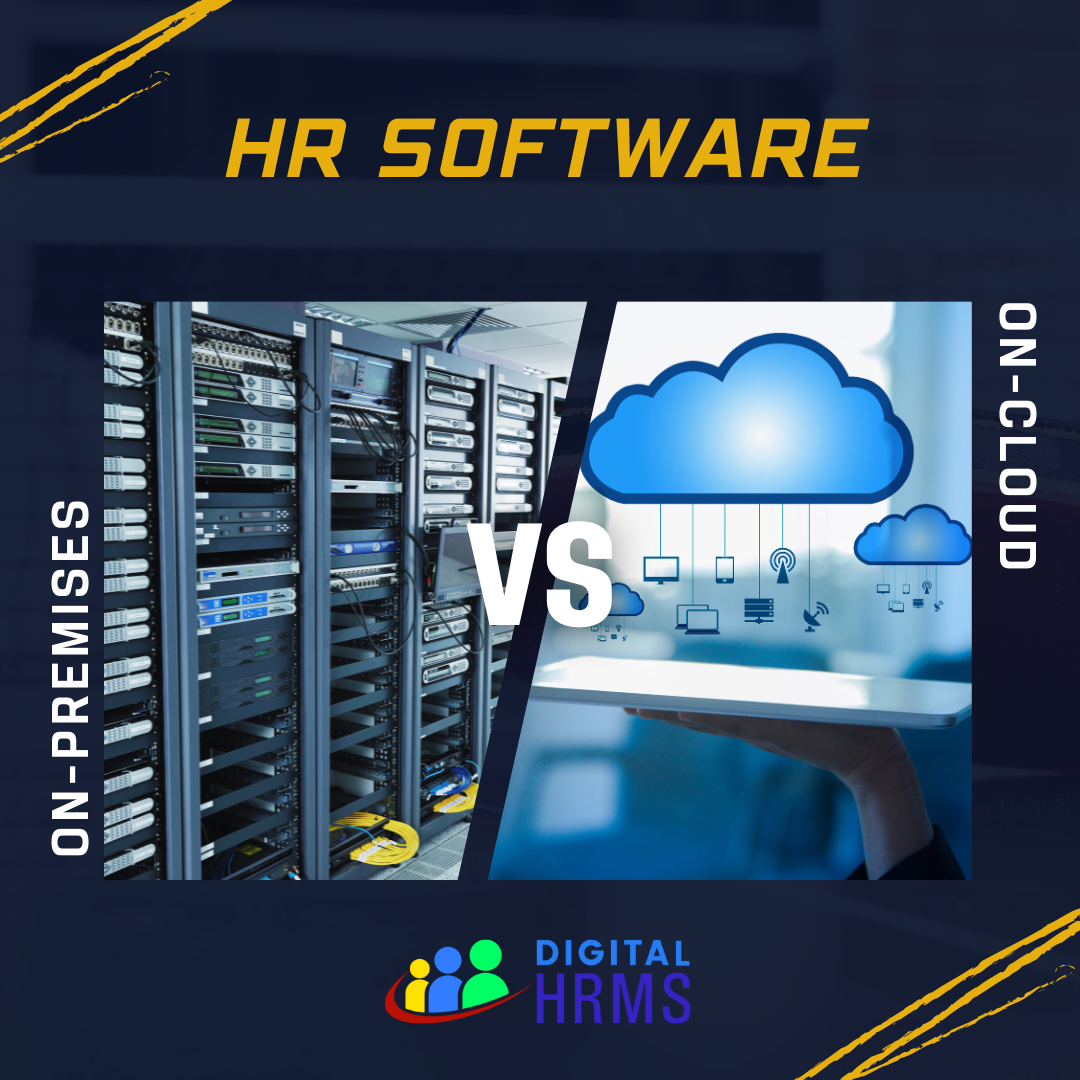On-Premises vs. On-Cloud HRMS: Making the Right Choice for Your Business

HR managers are often faced with the decision of choosing between an on-premises HR management system and a cloud-based HR management system. Let's delve into key factors to help you decide which option best suits your organization's needs.

Understanding On-Premise HRMS:
An on-premise HRMS is a software solution hosted on the company's servers, providing businesses with control and customization capabilities. While this offers a sense of ownership and control, it also entails substantial upfront costs and ongoing maintenance.
Exploring Cloud-Based HRMS:
On the other hand, a cloud-based HRMS is hosted by a third-party provider on remote servers. This solution empowers organizations to efficiently manage HR tasks through a secure internet-based platform, offering flexibility, scalability, and cost-efficiency.
Key Factors for Comparison:
1. Infrastructure: On-premise HR software requires dedicated infrastructure and hardware setup within the organization's premises, while cloud-based HRMS relies on remote servers managed by the service provider.
2. Setup Cost: On-premise HRMS entails significant upfront costs for infrastructure setup and software licensing, whereas cloud-based HRMS typically involves lower initial costs and a subscription-based pricing model.
3. Recurring Cost: While on-premise HRMS involves one-time setup costs, it also incurs ongoing maintenance and upgrade expenses. Cloud-based HRMS, on the other hand, usually has predictable recurring costs based on subscription plans.
4. System Updates: With on-premise HR software, organizations are responsible for managing system updates and upgrades. Cloud-based HRMS providers handle system updates automatically, ensuring organizations always have access to the latest features and enhancements.
5. Data Protection and Security: On-premise HRMS offers businesses greater control over data security, as sensitive information is stored within the organization's premises. Cloud-based HRMS providers employ robust security measures to protect data stored on remote servers.
6. Third-Party Integration: Both on-premise and cloud-based HRMS solutions support integration with third-party applications. However, cloud-based HRMS often offers more seamless integration capabilities due to its flexible architecture.
7. Compliance: Both types of HRMS solutions must comply with data protection regulations and industry standards. However, cloud-based HRMS providers typically have dedicated compliance teams to ensure adherence to regulatory requirements.
Making the Choice:
Ultimately, the decision between on-premises and on-cloud HRMS depends on factors such as budget, scalability, data security preferences, and IT capabilities. While on-premise HRMS offers control and customization, cloud-based HRMS provides flexibility, scalability, and cost-efficiency.
At Digital HRMS, we offer both on-premise and cloud-based HRMS solutions tailored to meet the diverse needs of organizations. Digital HRMS is highly customizable as per your unique needs and offers 21 modules to choose from. Whether you prefer full control over your HR system or the flexibility of a cloud-based platform, we have the right solution for you. Contact us today to learn more about our HRMS offerings and make the right choice for your business's HR needs. Reach out via email at marketing@digitalhrms.com, and our representatives will promptly get in touch with you.
